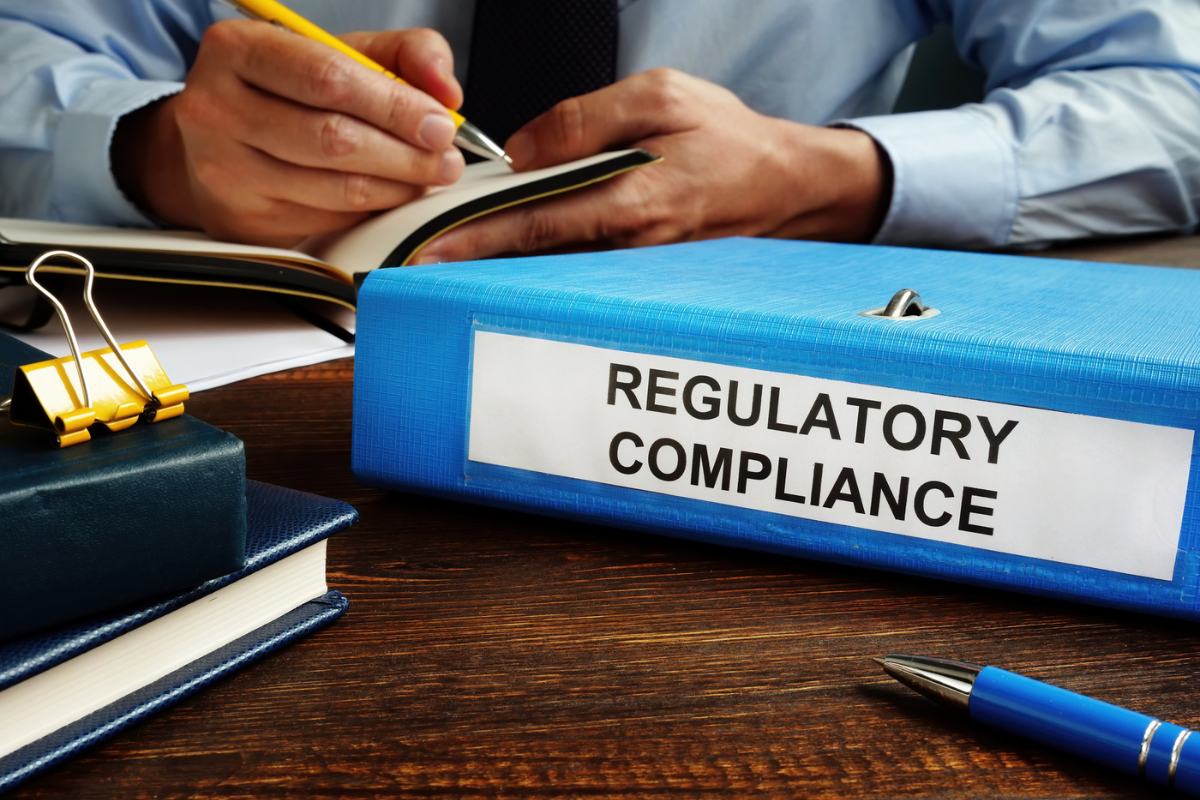Compliance management is the infrastructure evaluation to spot non-compliant systems, perhaps because of standards changes or misconfigurations.
It’s a requirement for any business to ensure it adheres to industry laws and standards, which help mitigate risks and conduct ethical enterprise operations.
Without compliance, your business could incur many financial losses because of legal and financial penalties.
Plus, you could lose certification, face security breaches, risk customer trust, and tarnish your brand reputation.
However, industry compliance laws can be complex and continuously changing.
Therefore, being on the lookout for compliance changes and updates helps avoid disrupting your enterprise procedure and save money. With that said, here are eight best practices in compliance management:
1.) Hire A Compliance Professional
Compliance management is a regular process that requires continuous monitoring, especially when working with third-party companies.
You’ll need to implement a robust due diligence process to ensure that they meet compliance standards.
Therefore, it’d help to work with third-party risk management firms such as Exiger TPRM or others to handle the compliance process for your enterprise.
They typically comprise former chief compliance officers (CCO) with years of experience and in-depth knowledge of the internal and external regulations your enterprise should adhere to.
Moreover, they have cutting-edge tools that allow for real-time risk rating, regular checkups on third parties, and easy onboarding.
They can help you enhance reporting using extensive dashboards to handle key performance indicators.
They can also develop executive-level reports and incorporate appropriate contractual provisions to safeguard against compliance risks.

2.) Conduct Constant Risk Assessments
You must do a risk assessment to help you know the vulnerable areas in your enterprise that could easily lead to non-compliance.
So, check all the critical areas of your company, like the internal processes, external factors, and industry-specific regulations.
Then from the findings, you can prioritize compliance efforts and allocate resources effectively.
3.) Implement Policies And Procedures
Policies and procedures mirror your company’s values, giving the frameworks for enterprise functioning and providing guidance to your staff.
Thus, ensure compliance policies and practices are transparent and precise and address essential regulatory requirements and internal controls.
They should outline compliance expectations for the team and provide guidelines for their day-to-day activities.
In addition, you must ensure that your staff knows how to handle, distribute, and monitor the policies.
So, always constantly review, update, and communicate policies and procedures to all relevant stakeholders.
4.) Create A Comprehensive Document Repository
To ensure your staff avoids non-compliance, inform them of the place where you keep all the vital compliance documents.
This way, your team can easily access the data to conduct work and avoid guesswork which could lead to problems.
Ensure they have all the compliance information in a paperless data management system which is easier to manage.
It’s also a helpful system, given that the laws are numerous and often change. Your team can access new information and use precise rules.
5.) Communicate Regularly
You must ensure you inform your staff about the compliance policies so that they can know and implement them.
Therefore, ensure you create multiple channels like a confidential hotline, an anonymous reporting system, or designated compliance officers for staff to report compliance concerns, ask questions, or seek guidance.
Always ensure that staff feels comfortable reporting potential compliance violations; they shouldn’t fear retaliation. You should also respond promptly to reports and investigate them thoroughly.
6.) Educate Staff
Your staff are crucial members of your company when it comes to compliance.

Thus, it’d help if you provided regular training on relevant laws, regulations, industry standards, and the organization’s specific compliance policies and education programs to staff at all levels in your company.
By providing comprehensive training, you can raise awareness about compliance issues, empower employees to make informed decisions and promote a culture of compliance throughout the enterprise.
7.) Perform Compliance Audits
Regularly conduct internal audits to assess the compliance program’s effectiveness and identify improvement areas.
The audits provide an independent evaluation of compliance practices, identify gaps or areas of non-compliance and the amount you used for the violations and recommend corrective actions.
You can know where you are in terms of compliance. The audit should entail all relevant compliance aspects, like policies, procedures, training programs, and monitoring mechanisms.
During the audits, you can know whether to make changes, like onboard a professional CCO, to help you avoid paying heavy fines for non-compliance.
8.) Monitor And Review Compliance
Even though you have a compliance management process, you must monitor changes in laws, regulations, and industry standards.
So, regularly evaluate and review the compliance program’s effectiveness, analyze trends and metrics, and seek stakeholder feedback.
The data you gather is crucial for spotting areas for improvement, updating policies and procedures, and implementing proactive measures to mitigate risks.
Conclusion
Prioritizing compliance management requires implementing the best practices to help decrease legal and reputational risks and create a culture of integrity.
So, you must follow all the processes and procedures to help your enterprise comply with industry rules.
You can seek help from experienced compliance officers to help you with the best practices. This allows you to build trust and create a compliant business environment.
Ella Marcotte
Latest posts by Ella Marcotte (see all)
- UA vs GA4: The 4 Big Differences You Need To Know - April 26, 2024
- Understanding The Role Of Control Valves In Industrial Automation - April 8, 2024
- How Automation Can Boost Your Business Outcomes - April 4, 2024




